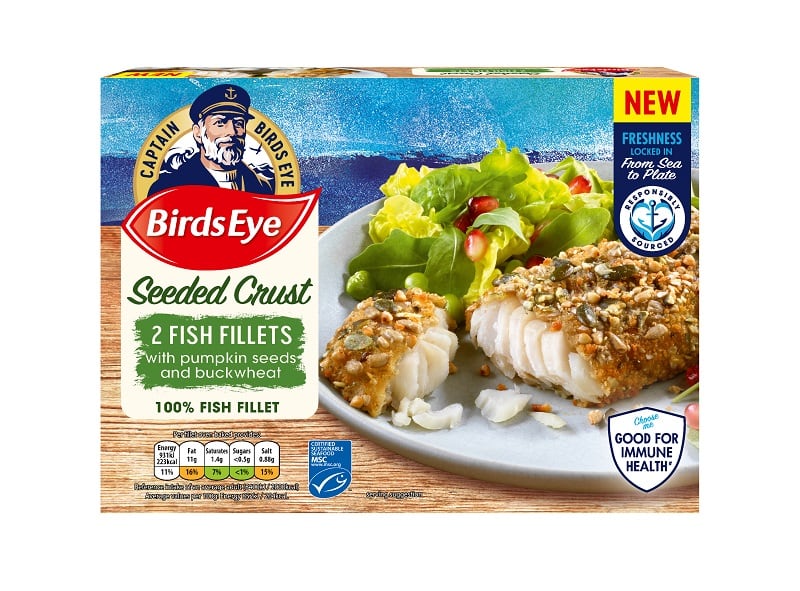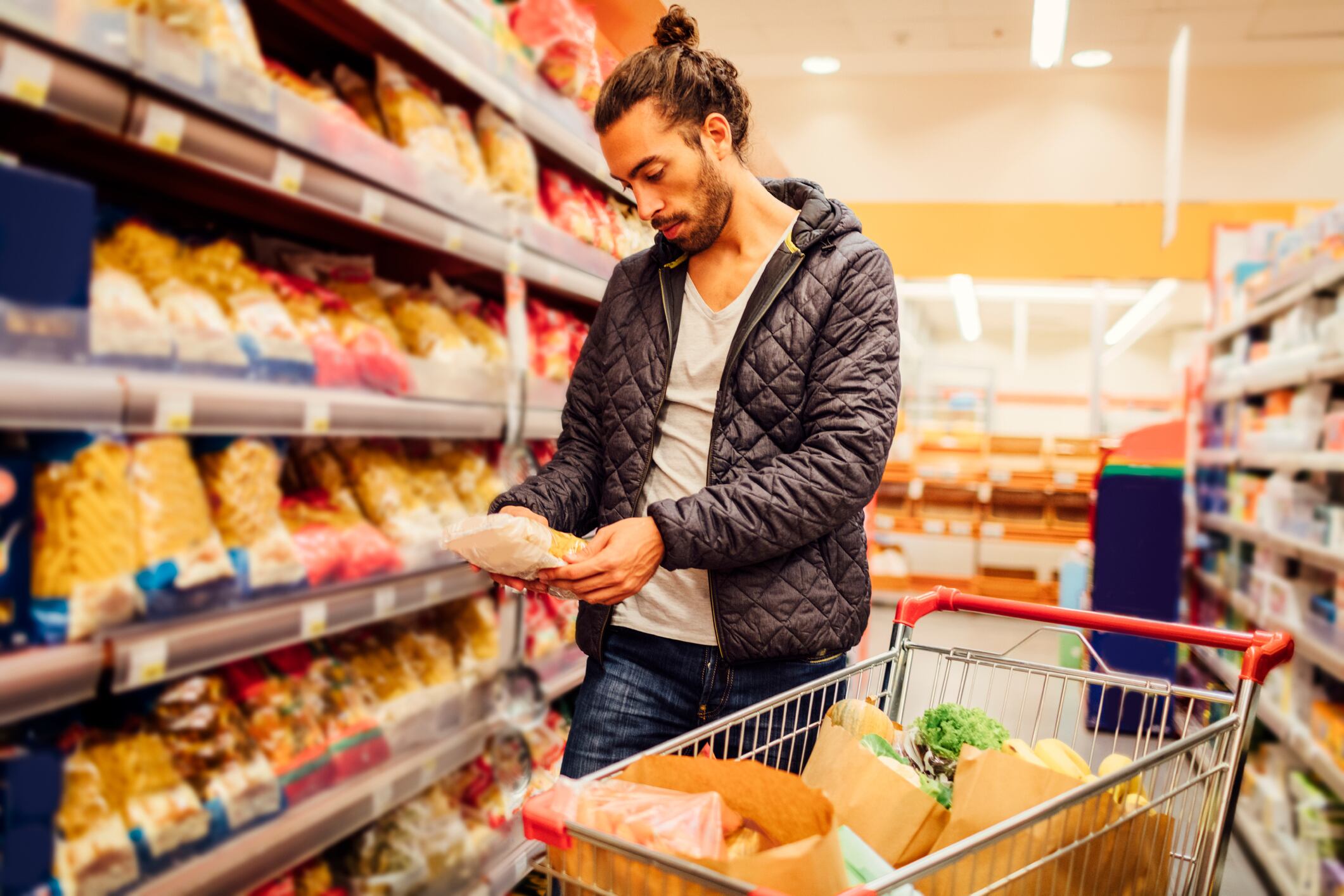The food system is responsible for around a third of greenhouse gas emissions. Globally, 70% of freshwater resources are used in agriculture. One-third of the earth’s soils are no longer productive and 75% of crop diversity has already been lost.
Consumers want to see a fundamental change in how the food system operates. According to research from the Nature Friendly Farming Network, 60% of shoppers already look for details of the method of production on pack, while 97% want clearer labelling to help them make ‘positive choices’ and 99% say they want to support farmers in biodiversity and climate restoration.
Can labelling really drive system transformation?
Professor Tim Lang of City University told this year’s Oxford Farming Conference that mandatory labelling is the ‘weakest’ policy measure available to support the transition to a less damaging food system.
“Why are we talking about the weakest of policy interventions, which is what labelling is? People don’t use them most of the time, unless you have a baby or a heart attack. Then people get really interested. Is this the way forward to change the British food system?”
The answer, according to Professor Lang,is ‘no’. However, he continued, mandatory labels could be ‘useful right now’ in the UK because the country has an opportunity to take advantage of Brexit (which he characterised as a ‘compete joke’) to ‘get to grips with labelling’.
Describing labelling as the ‘lowest common denominator’, the food policy expert insisted that a comprehensive approach to mandatory labels that take in a range of issues, from animal welfare to environmental and social impact, is urgently needed.
“Its multicriteria labelling for food or bust,” he told the audience of the digital event. “Let me be stark. I’m old. I’ll see the earth out. But my grandchildren won’t unless we get a grip of this.”
In contrast, agro-farmer Martin Lines is more optimistic that consumers can be empowered to shift the system of food production. The Chairman of the Nature Friendly Farming Network reflected that he regularly receives request from consumers asking how they can purchase sustainable products from within the network. “They recognise farmers are doing great things and they to support that,” he suggested.
The current hodgepodge of different labelling systems – none of which are mandatory – is letting down this engaged consumer base and trust is increasingly an issue. “The consumer is so confused at the moment, there is so much greenwashing and more to come,” Lines warned.
“We know food labelling can really deliver positive change. It gives the farmer recognition of the produce, it gives a marketing opportunity and it builds trust with consumers, who we need to reconnect with their food choices. Regardless of what they want to eat they need to understand where its produced, how its produced, what ingredients it has, what effects this has on our landscape. Is it positive for biodiversity, carbon or rural economies?”
Labelling to overcome the value-action gap?
While consumers say they are interested in issues like animal welfare, Defra policy advisor Hannah Jordan said this isn’t always translating to action. “Consumers consistently say they care about welfare and the environment but this doesn’t translate to their purchasing actions, this is the value action gap. Other factors come into play and trade-offs are involved when consumers are picking things in store. Quite often price, quality or pack size comes up before they come to things like welfare,” she observed.
Jordan suggested the situation could be characterised as a ‘market failure’ because restricted access to information on production footprint means it is impossible to create ‘clear and consistent demand’ for sustainable foods because, at the moment, ‘you don’t know what you are demanding’.
“Farmers opting for high welfare systems or delivering environmental benefits don’t always receive a premium or reward for their products. In fact, it’s very difficult for them to identify [themselves to] consumer at all,” Jordan suggested, adding ‘stricter regulation of terminology’ for claims like ‘grass fed’ or ‘natural’ could have a role.
Making the sustainable choice more affordable and accessible through adjustments to the food environment can be achieved through mandatory labelling, the policy export continued pointing to egg labelling as case in point.
“Mandatory labelling was a crucial factor for increasing sale of high welfare eggs,” she said noting that the price dropped as they became more mainstream and consumers could understand a simple grading system from battery, to barn, to free range to organic. Supermarkets, she continued, ‘didn’t want to be seen to promote’ lower welfares systems and adjusted their ranging and pricing strategies accordingly.
“The value action gap could be reduced by creating a food environment that makes it easier for consumers to choose products that match their values. This might incentivise retailers to increase availability, affordability or accessibility,” the Defra representative said.
Lines agreed that the drop-off in demand for battery eggs is a prime example of the influence mandatory labelling can wield. “We know a mandatory labelling system drove positive change. It reduced the marketplace for the caged system that the consumer recognised wasn’t the best for animal welfare and moved purchasing choice. That also allowed us as farmers and the public to put pressure on supply chains to step up their game. They moved their stocking shelf.”
Countering greenwashing with credible information
As higher production standards become a talking point for consumers the risk of greenwashing increases, the eco-farmer warned. For instance, Lines noted that a ‘lot of big corporations’ are ‘circling the opportunity’ around regenerative food and farming. And while Lines’ own farm has undergone a 20-year transition away from agro-industrial production and towards practices that support biodiversity and ecosystems, he worries that without clear definitions the regenerative movement could be exposed to greenwashing.
This tendency is already evident in the ‘fake names’ supermarkets in the UK invent for their produce lines or products like sugar that carry the Union Jack on their packaging but are only packed – not grown or processed – in the UK, Lines suggested.
“Unless we have some clearly defined metrics around it, [regenerative] will just be [used for] greenwashing. It will not deliver the changes we need and at pace. But if we have those standards, we can connect farmers to deliver and give them market return for doing it.”
Greenwashing can also see businesses focus their communications on one - more convenient - metric over other issues. This means it is vital that mandatory sustainability labelling takes in a host of issues, Professor Lang believes -- a far cry from the situation the market is faced with today.
“There are hundreds of different approaches, there are different methods, pressure groups… Currently there is a mess, what in academic systems we call policy cacophony,” he argued.
Defra has just closed its consultation period on the future of animal welfare labelling and work is underway across White Hall to develop a policy paper in response to the National Food Strategy, an independent report overseen by Henry Dimbleby.
Professor Lang was critical of Defra’s decision to call out animal welfare as a stand-alone issue for mandatory labelling requirements.
“Animal welfare over the environment, over health, over trade?… Come on.
“It is multicriteria time or bust. It’s not we need to know about ingredients, or sourcing, or the environment, or health or the economic, or the labour issues, or the social criteria, or animal welfare, or the ethical issues. It is all of them that matter. Sustainability is about all of that.
“That’s why at COP26 we got nowhere on food. It was shameful that Britain as chair of COP26 did nothing on food and sustainable consumption. Why? Because food accounts for 20-30% of all greenhouse gasses, let alone is the biggest driver of biodiversity [loss], the biggest water use, the biggest shaper and framer of land use, the biggest expenditure that most people on the planet spend. To be silent on that was a sign that politicians didn’t want to engage with the consumer.”




